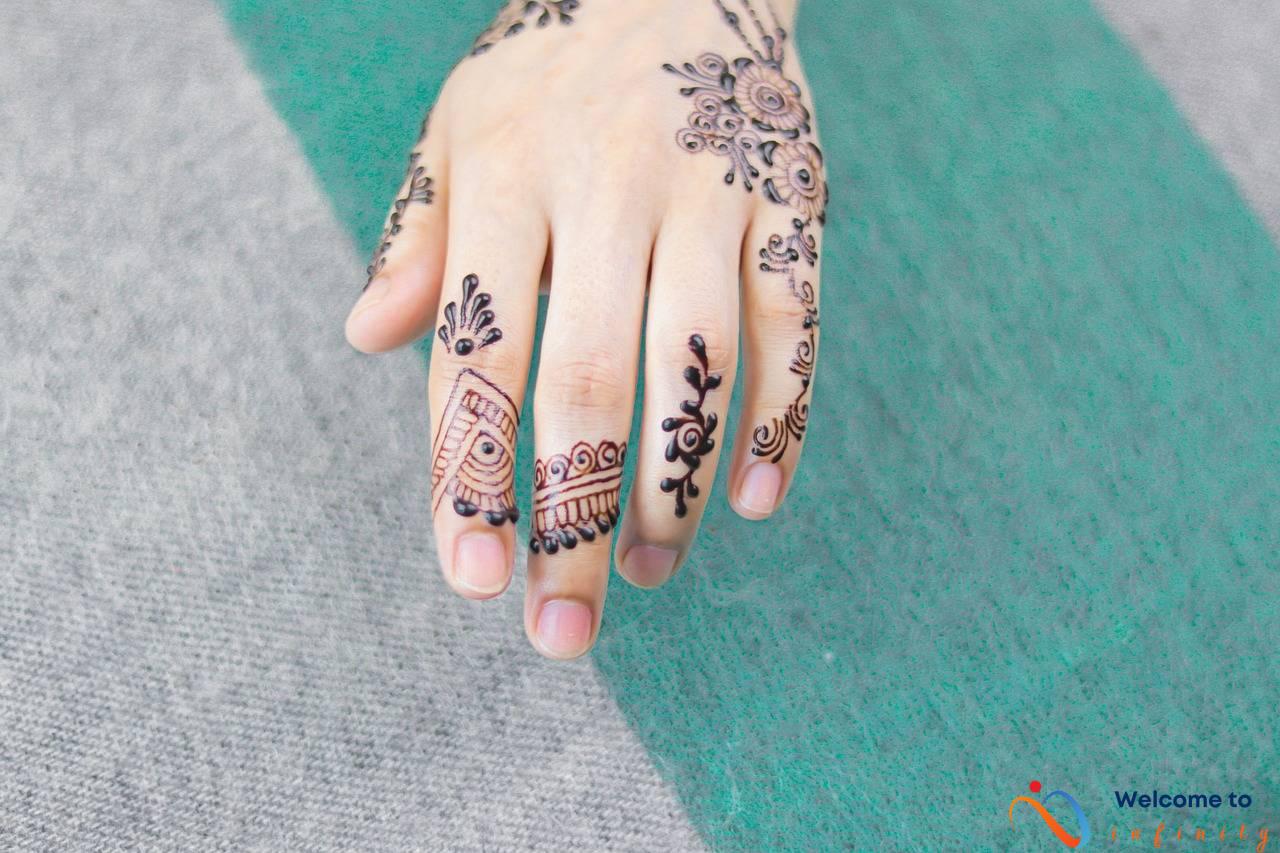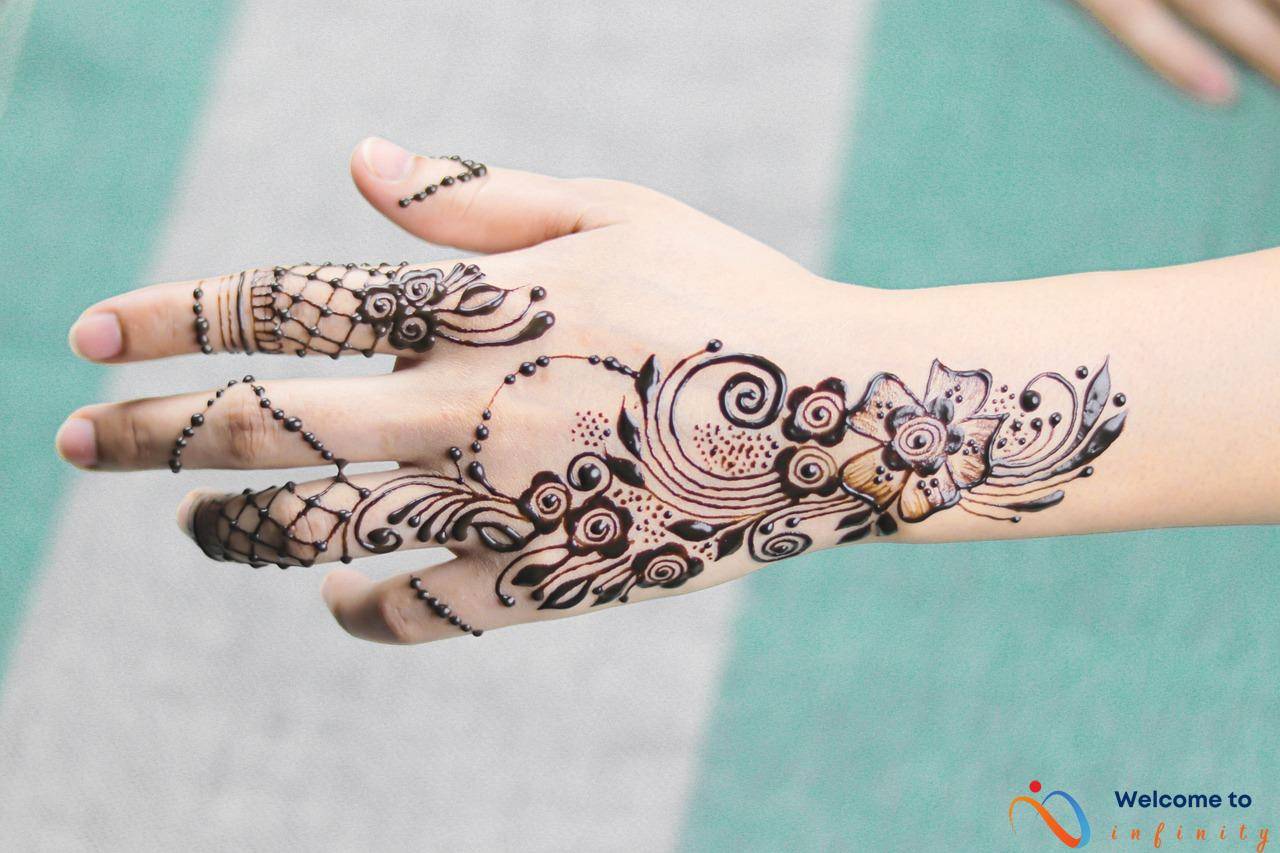If you think of tattooing as just a form of body art, it's time to rethink your assumptions. For many people, getting a tattoo can be a deeply spiritual and even meditative experience. In recent years, more and more tattoo artists have been incorporating mindfulness, meditation, and other spiritual practices into their work, creating a unique and transformative experience for their clients.
At its core, meditative tattooing is about creating a deeply personal and meaningful connection between the artist and the client. By combining traditional tattoo techniques with mindfulness techniques, artists are able to create a meditative environment that allows for a more immersive and emotionally resonant experience. Many artists use breathing techniques, mantras, or other mindfulness practices to help center their clients during the tattooing process.
Incorporating meditation and other spiritual practices into tattooing can also help individuals feel more connected to their tattoos and the meaning behind them. For many people, tattoos are a way to express their beliefs, values, and identities. By taking the time to mindfully and intentionally create a tattoo, individuals can feel a renewed sense of purpose and connection to their tattoo.
Of course, not every tattoo artist practices meditative tattooing, and not every client is looking for a spiritual experience when they get a tattoo. However, for those who are seeking a deeper connection to their body art, meditative tattooing can be a powerful and transformative experience that brings together the physical and spiritual aspects of the tattooing process.
The Rise of Meditative Tattooing
Meditation has made its way into the world of tattooing, and some artists are harnessing its power to create a more transformative and immersive experience for their clients. By incorporating mindfulness and meditation practices into their work, these artists hope to tap into something deeper than just the physical act of getting a tattoo.
Some tattoo artists are beginning each session with a brief meditation to help relax and connect with their clients on a more spiritual level. By focusing on the breath and the present moment, both artist and client can become fully present and engaged in the experience.
Other tattoo artists are offering guided meditations specifically designed to enhance the tattooing experience. By encouraging clients to visualize their desired design and set an intention for the tattoo, these artists are creating a more intentional and meaningful experience for their clients.
Ultimately, the rise of meditative tattooing showcases the growing shift towards more spiritually-focused practices in the tattoo industry. As more people seek out tattoos as a way to express their beliefs and values, it makes sense that the experience itself would become more immersive and transformative.
The Spiritual Power of Tattoos
The art of tattoos has been around for thousands of years and has a rich history of serving as a spiritual symbol across cultures. Many indigenous tribes throughout history have used tattoos as a way to express their connection to nature, their ancestors and their gods. Tattoos are often infused with spiritual significance, a quality that remains relevant today.
In contemporary Western culture, tattoos are still widely regarded as a way to express one's individuality, values, and beliefs. Whether it's a tattoo of a religious figure, symbol or quotation, many people still feel a deep spiritual connection to their body art.
This spiritual connection is not exclusive to Christianity or other organized religions. For instance, many cultures from Polynesia to the Incas have used tattoos as a way to express their connection to their ancestors and their spiritual planes.
Tattoos act as spiritual talismans, offering protection and guidance for those who wear them. Some tattoos symbolize certain qualities, such as courage, strength, or wisdom, while others serve as an affirmation of one's faith or values.
Today, tattoos continue to be a powerful means of self-expression. Spiritual tattoos still resonate with many people because they offer a tangible, permanent reminder of their beliefs, values and their spiritual journey.
In conclusion, the spiritual power of tattoos can be seen through their longstanding tradition as spiritual symbols across cultures. Tattoos are still meaningful today as a form of self-expression, representing one's personal beliefs, values, and identity. Tattoos also have the power to provide protection and guidance, serving as a spiritual talisman.
Tattoos as a Form of Self-Expression
Tattoos have long been recognized as a form of self-expression, allowing individuals to communicate personal beliefs, values, and identities to the world. They serve as a visual representation of our innermost thoughts and emotions, conveying messages that are meaningful and significant to us. For many people, tattoos are a way to tell a story, to share a part of ourselves with others, and to mark important moments in our lives.
Not only do tattoos have personal significance, but they also serve as a way to connect with others who share similar beliefs and values. Tattoo culture has created a community of individuals who come together to celebrate the art and meaning behind body art. Some people use tattoos as a way to show solidarity with a particular group or cause, while others use them to express their individuality and uniqueness.
The emotional significance of tattoos cannot be overstated. For many people, getting a tattoo is a deeply personal, spiritual, and transformative experience. It allows them to take control of their bodies and make a permanent statement about who they are and what they stand for. From memorializing loved ones to honoring cultural heritage, tattoos have the power to tell stories that go beyond words.
- Tattoos allow individuals to communicate personal beliefs, values, and identities to the world
- Tattoo culture has created a community of individuals who come together to celebrate the art and meaning behind body art
- Tattoos can be a deeply personal, spiritual, and transformative experience
- Tattoos have the power to tell stories that go beyond words
In conclusion, tattoos are more than just body art. They serve as a powerful way to express ourselves, to connect with others, and to create meaning in our lives. Whether we choose to get tattoos for personal reasons or to show solidarity with a particular group or cause, they will always hold a special place in our hearts and minds.
The Role of Ritual and Ceremony
Tattooing has been viewed as a sacred practice for centuries, and many cultures have used tattoos as a way to mark important life events or spiritual beliefs. For some individuals, getting a tattoo is a form of ritual or ceremony that holds deep spiritual significance. The process of getting tattooed can be seen as a way to connect with oneself and the wider world, as the act of marking the skin is a physical manifestation of an internal transformation.
Some tattoo artists recognize the importance of ritual and ceremony in the tattooing process and incorporate these elements into their work. This can include the use of traditional tools or methods, such as hand-poking, or incorporating specific symbols or designs with cultural or spiritual significance. By intentionally creating a meditative and ceremonial space, tattoo artists can help their clients feel more grounded and centered throughout the process.
For many individuals, the tattooing experience can be deeply emotional and cathartic. By viewing it as a form of ritual or ceremony, it can become a transformative practice that helps them connect with their own inner strength and resilience. This can be especially true for those who have experienced trauma or are using tattoos as a way to mark a significant life event. By acknowledging the spiritual power of tattoos and creating a sacred space for the tattooing process, individuals are able to feel more empowered and connected to their own bodies and identities.
Ultimately, the role of ritual and ceremony in tattooing can help individuals feel more connected to themselves, their communities, and the wider world. By creating a meditative and intentional space, tattoo artists are able to provide a more transformative and meaningful experience for their clients. The power of tattoos as a form of ritual and self-expression is likely to continue to resonate with individuals for years to come.
Tattooing as a Healing Practice
Tattoos have always been more than just body art. They have served as symbols of cultural identity, religious beliefs, and personal expression. However, in recent years, tattoos have taken on a new role as a healing practice. For some individuals, getting a tattoo can be a way to cope with emotional pain or trauma.
Tattoo artists who specialize in this type of work are trained to create designs that are sensitive to the client's emotional needs. They may modify traditional designs to fit the person's individual experience, or create something entirely new that incorporates elements of the person's story or journey. Some artists are even trained in scar tattooing, where they can tattoo over scars or reconstructive surgeries, helping to alleviate the physical and emotional pain associated with these experiences.
The act of getting a tattoo itself can also be cathartic and healing. For some individuals, the controlled experience of getting inked can provide a sense of control and agency over their bodies and their lives. The process of sitting still and focusing on a single point can also be meditative and calming, creating a sense of mindfulness and presence in the moment.
While tattooing as a healing practice is not without controversy, for many people, it is a powerful tool for emotional and spiritual growth. As the tattoo industry continues to evolve, it is likely that we will see more artists specializing in this type of work, creating new designs and techniques that help individuals find meaning and healing through their tattoos.
The Importance of Mindfulness in Tattooing
The art of tattooing has evolved greatly over the years, and today, many tattoo artists are incorporating mindfulness and meditation into their practice. Mindfulness involves being present and fully engaged in the present moment, while meditation involves focusing the mind on a particular object or thought. These practices can help both the artist and the client to be fully present during the tattooing process, leading to a more transformative and fulfilling experience.
Mindfulness in tattooing can involve practices such as deep breathing and visualization techniques to help both the artist and client remain calm and focused during the tattooing process. This can help to reduce pain and discomfort and create a more relaxed and enjoyable experience. Some tattoo artists even incorporate guided meditations or affirmations into their work to help clients feel more centered and present during the process.
For many people, tattoos are a deeply personal and spiritual form of self-expression, and incorporating mindfulness and meditation into the process can enhance this aspect. By being fully present and engaged, clients can tap into their deepest innermost selves and explore their own spiritual connection to their body art.
- By helping clients to be present and focused during the tattooing process, mindfulness and meditation can make the experience more meaningful and transformative.
- Tattoo artists who incorporate these practices into their work are able to create a more immersive and personalized experience for their clients.
- Mindfulness and meditation can also help to reduce pain and discomfort during the tattooing process, making the experience more enjoyable and less stressful for clients.
The future of Meditative Tattooing
The world of tattoo art is constantly evolving, and some tattoo artists are exploring new methods to incorporate spiritual practices into the tattooing experience. With the rise of meditative tattooing, it's no surprise that artists are looking for ways to enhance the transformative power of tattoos with new technologies and methods.
One of the most exciting developments in the future of meditative tattooing is the use of virtual reality technology. Some artists are experimenting with VR headsets to create a more immersive and meditative experience for their clients. By creating a virtual environment that complements the tattoo design, artists can take the experience to a whole new level.
Another trend is the use of biohacking and wearables to enhance the spiritual power of tattoos. Some artists are incorporating devices like heart rate monitors, EEG headsets, and even biofeedback sensors into the tattooing experience to measure the wearer's physiological response. By linking these devices to the tattoo design, the wearer can become more aware of their spiritual connection to the tattoo and can use it as a tool for mindfulness and meditation.
Finally, some artists are exploring new tattooing methods that are designed to promote healing and wellness. For example, artists are incorporating herbal remedies into their tattoo ink or using sterile acupuncture needles to promote energy flow and healing after the tattoo is complete. These methods may be particularly beneficial for individuals who are seeking tattoos as a way to cope with emotional pain or trauma.
In conclusion, the future of meditative tattooing is bright, and the possibilities are endless. As artists continue to explore new technologies and methods to enhance the spiritual power of tattoos, we can expect to see a continued rise in the popularity of this deeply transformative form of body art.









